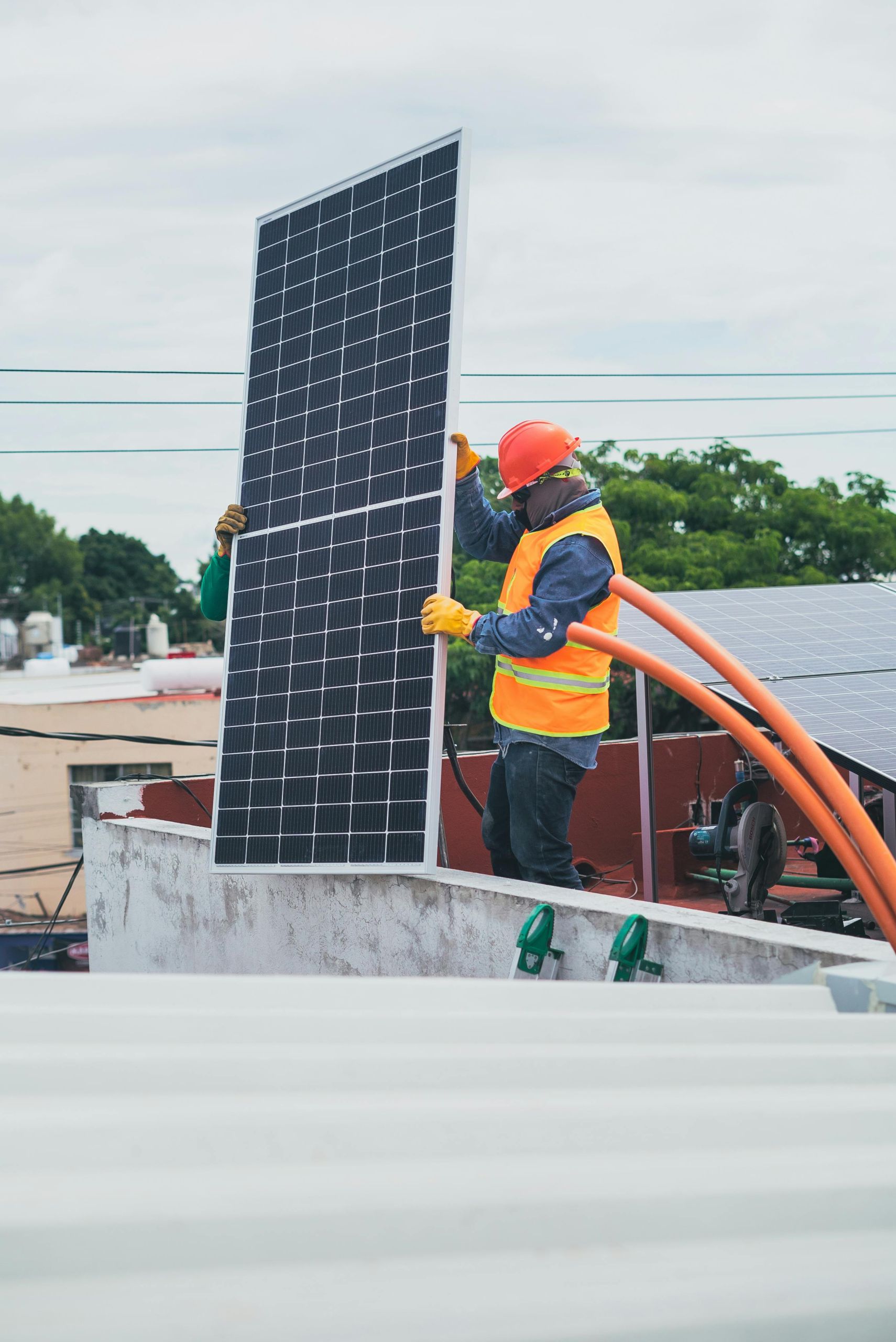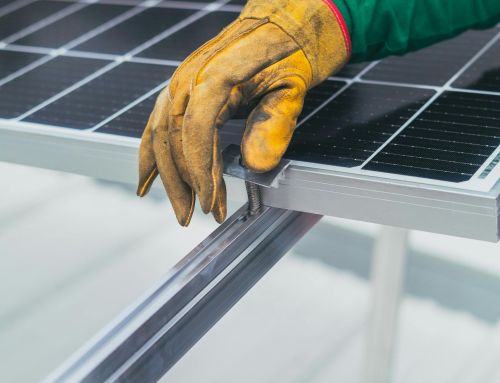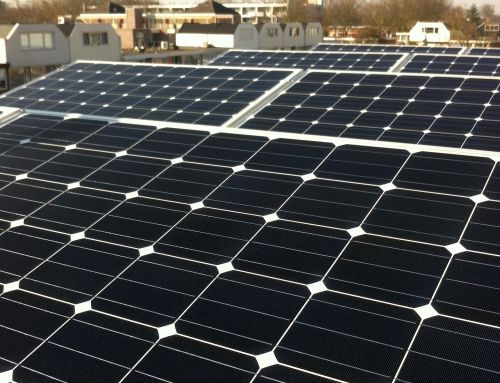Thinking about making the switch to solar power for your industrial facility? It’s a fantastic decision! But with all the different types of solar panels out there, you might be wondering: which solar panel is best for industrial use?
Choosing the right solar panel is crucial for maximizing your investment and reaping the benefits of solar power. Here’s the thing: there’s no single “one size fits all” answer. The best solar panel for your industrial building depends on a variety of factors specific to your needs.
Let’s delve into the world of solar panels for industrial buildings and explore the different options available:
Unveiling the Solar Panel Contenders: Three Main Players
There are three main types of solar panels commonly used in industrial settings:
1. Monocrystalline Silicon Solar Panels: Imagine these as the high achievers of the solar panel world. Made from pure silicon crystals, they boast the highest efficiency rates, meaning they convert the most sunlight into electricity. This efficiency comes at a slightly higher price point compared to other types.
2. Polycrystalline Silicon Solar Panels: These workhorses are the most widely used type of solar panel. They are made from multiple silicon crystals, resulting in a slightly lower efficiency than monocrystalline panels. However, they are also generally more affordable.
3. Thin-Film Solar Panels: These lightweight contenders are known for their versatility. They can be flexible and installed on curved surfaces, making them a good option for some industrial rooftops. However, they have the lowest efficiency among the three types.
Factors to Consider When Selecting Solar Panels for Your Industrial Building
Now that you’ve met the contenders, let’s explore the factors that will help you pick the champion for your industrial needs:

Energy Needs
Understanding your facility’s energy consumption is crucial for selecting the right size and type of solar panel system.
High-consumption facilities, such as manufacturing plants or data centers, may require larger systems with high-efficiency panels to meet their energy demands.
On the other hand, smaller facilities with moderate energy usage can opt for more budget-friendly options.
Rooftop Space
The available space on your industrial building’s roof will significantly impact the size and configuration of your solar panel system.
If you have limited rooftop space, you may need to prioritize high-efficiency panels to maximize energy production. Conversely, if you have ample space, you can consider a larger system with a mix of panel types.
Budget
Solar panels are an investment, and the cost can vary depending on the type of panels, system size, and installation complexity.
Consider your budget and weigh it against the long-term savings you can expect from reduced electricity bills. Remember, while higher-efficiency panels might have a higher upfront cost, they can offer a faster payback period and greater long-term savings.
Climate
Your region’s climate can also influence the choice of solar panels. Areas with consistent sunshine and mild temperatures might benefit from monocrystalline panels, which offer high efficiency.
However, in harsher environments with frequent cloudy days or extreme temperatures, thin-film panels might be a more suitable option due to their durability and flexibility.
Durability
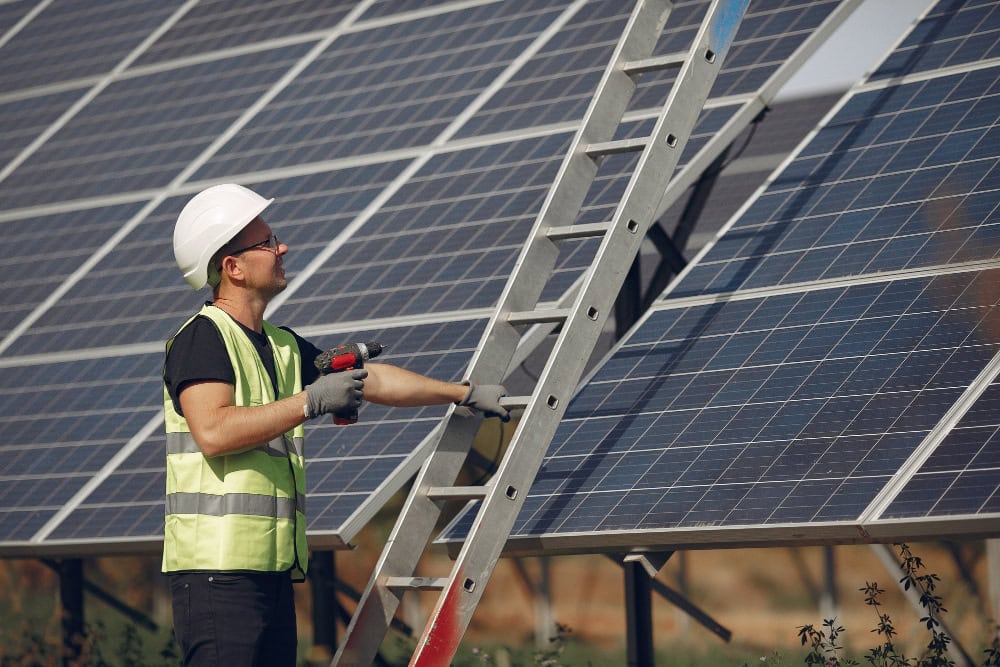
Industrial environments can be demanding, with exposure to harsh weather conditions, vibrations, and other factors.
Consider the durability of different solar panel types to ensure they can withstand the challenges of your specific industrial setting. Look for panels with strong warranties and proven track records in similar environments
Remember: There’s no one-size-fits-all answer. The best choice will depend on your specific circumstances. Consulting with a professional solar installer can help you assess your needs and recommend the optimal type of panel for your industrial facility.
Beyond the Panel: Additional Considerations for Industrial Solar Power
While choosing the right panel is important, there’s more to consider when going solar for your business:
System Design and Installation
A well-designed and installed solar panel system is crucial for maximizing its efficiency and long-term performance. Partnering with a reputable solar installer with experience in industrial projects ensures that your system is properly designed, sized, and installed to meet your specific needs.
Solar Panel Layout and Orientation
The layout and orientation of your solar panels can significantly impact their energy production. A professional installer can assess your rooftop and determine the optimal placement for your panels to maximize sunlight exposure and minimize shading.
Electrical Grid Integration
Integrating your solar panel system with the electrical grid requires careful planning and installation. A qualified installer will ensure that your system is compatible with the grid and that the necessary permits and approvals are obtained.
Financing Options
There are various financing options available for industrial solar projects, allowing you to spread out the upfront costs and make the investment more affordable. Some common options include:
• Loans: Solar loans can provide financing for the entire cost of your solar panel system, allowing you to spread payments over a specified period.
• Leases: Solar leases allow you to lease the solar panel system from a third-party provider. You pay a monthly fee for the electricity generated by the system.
• Power Purchase Agreements (PPAs): Under a PPA, you agree to purchase electricity from the solar panel system owner at a predetermined rate. This can be a good option if you prefer to avoid upfront costs.
Maintenance
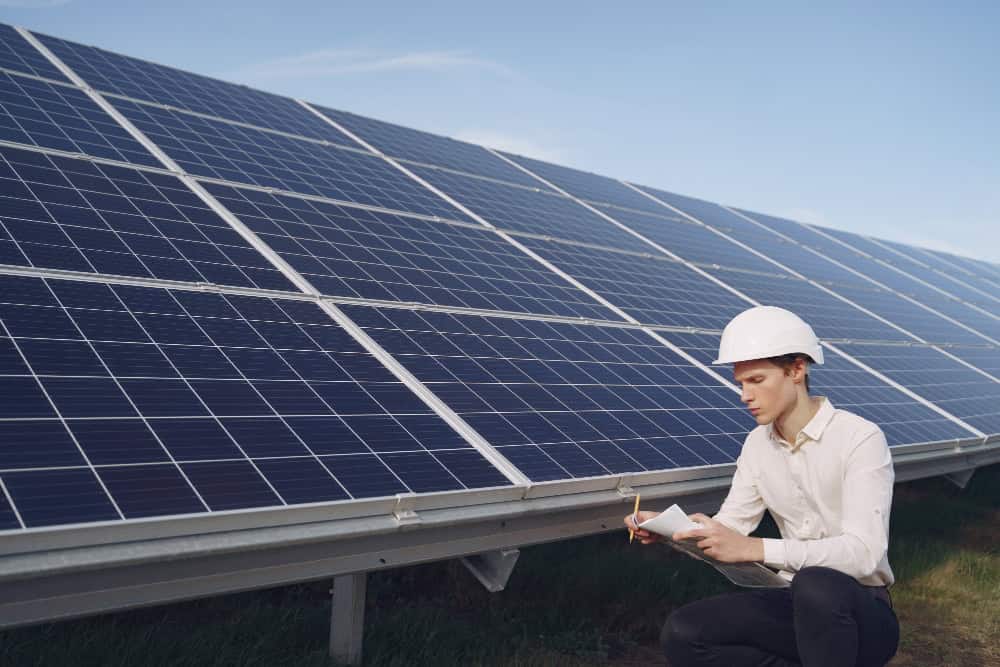
Regular maintenance is essential for ensuring that your solar panel system operates at peak efficiency. Consider including a maintenance plan in your overall solar project. This can include routine inspections, cleaning, and repairs as needed.
By carefully considering these factors and working with a reputable solar installer, you can ensure that your industrial solar panel system is designed, installed, and maintained properly for optimal performance and long-term benefits.
The Benefits of Going Solar for Your Industrial Facility
Making the switch to solar power for your industrial building offers a multitude of benefits:
• Reduced Energy Costs: Solar energy is a clean and renewable source of power. It helps you save significantly on electricity bills over time, boosting your bottom line.
• Increased Sustainability: By harnessing the power of the sun, you’re reducing your reliance on fossil fuels and contributing to a greener future.
• Government Incentives: Many governments offer incentives for businesses that invest in solar power. These incentives can help offset the upfront cost of installation.
• Improved Brand Image: Going solar shows your commitment to sustainability and environmental responsibility, potentially enhancing your brand image and customer perception.
Conclusion
By understanding which solar panel is best for industrial use and the factors to consider, you’re well on your way to making an informed decision. Choosing the right solar panel for your industrial facility is an important decision that can have a significant impact on your business’s bottom line and sustainability. By considering your energy needs, rooftop space, budget, climate, and other factors, you can select the most suitable panel type and ensure a successful solar installation.
Prolectrix is here to help you with all your solar energy needs for your business. Our team of experienced solar installers can provide you with a personalized assessment and guide you through the process of installing solar panels. Contact us today to learn more about how solar power can benefit your industrial facility.

